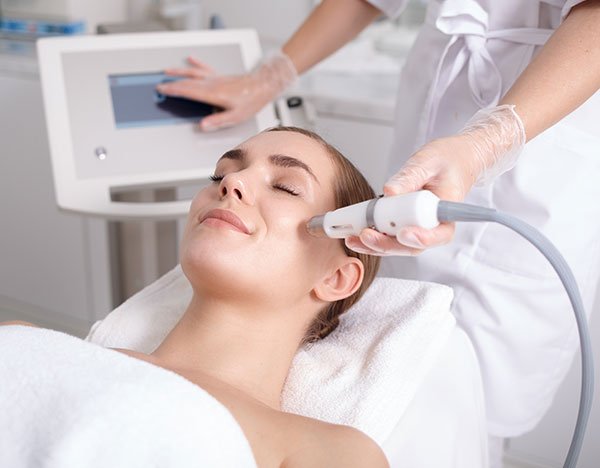Athena Skin Hair & Dental Clinic
Pigment Lasers

What is Pigment Lasers
Causes of Skin Pigmentation
Skin pigmentation disorders arise due to excessive melanin production. The common causes include:
Sun Exposure: Prolonged exposure to UV rays triggers melanin production, leading to dark spots and uneven skin tone.
Hormonal Changes: Pregnancy, birth control pills, and hormonal therapy can contribute to conditions like melasma.
Aging: As we age, melanin accumulation increases, causing age spots and discoloration.
Genetics: Some individuals are naturally predisposed to pigmentation issues.
Inflammation & Injury: Acne scars, wounds, or other skin injuries can lead to post-inflammatory hyperpigmentation.
Certain Medications: Some medications may cause pigmentation as a side effect.
Symptoms of Skin Pigmentation Disorders
Different pigmentation conditions present unique symptoms, including:
Melasma: Brown or grayish patches, often appearing on the face.
Freckles: Small brown spots that become more pronounced with sun exposure.
Sunspots: Dark patches that appear on areas exposed to the sun, such as the face, hands, and shoulders.
Post-inflammatory Hyperpigmentation (PIH): Darkened areas following acne, burns, or other skin trauma.
Pigment Laser Treatment
How Does It Work?
Pigment laser treatment works by emitting targeted laser energy that breaks down excess melanin in the skin. The fragmented melanin is then naturally eliminated by the body’s immune system, leading to a clearer and more even skin tone.
Types of Pigment Lasers
Q-Switched Nd:YAG Laser: Effective for treating freckles, melasma, and tattoos.
Pico Laser: Uses ultra-short pulses to break down pigmentation without damaging surrounding tissues.
Fractional Lasers: Targets deep pigmentation and also promotes collagen production for overall skin improvement.
Procedure
Consultation: A dermatologist assesses the pigmentation type and determines the suitable laser.
Preparation: The skin is cleansed, and a numbing cream may be applied.
Laser Application: The laser is applied to the affected areas, with mild sensations similar to tiny pricks.
Post-Treatment Care: The skin may appear red or slightly swollen, which subsides within a few hours to days.
Prevention of Skin Pigmentation
To minimize the risk of pigmentation issues, follow these preventive measures:
Sun Protection: Apply broad-spectrum sunscreen (SPF 30 or higher) daily.
Avoid Harsh Skincare Products: Use gentle, non-irritating skincare formulations.
Hydration & Nutrition: Maintain a healthy diet rich in antioxidants and vitamins.
Proper Skincare Routine: Regular exfoliation and use of brightening agents like Vitamin C and niacinamide.
Avoid Picking Skin: Refrain from scratching acne or wounds to prevent post-inflammatory pigmentation.
Manage Hormonal Imbalances: Consult a doctor if you suspect hormonal influences on your skin.
Recovery and Aftercare
Post-treatment care is essential for optimal results. Here’s what to expect:
Immediate Effects: Mild redness and swelling may occur but subside within a few hours to days.
Skin Peeling: In some cases, treated areas may peel, revealing fresh skin underneath.
Hydration: Keep the skin moisturized to aid healing.
Sun Protection: Avoid direct sun exposure and use SPF religiously.
Multiple Sessions: Some pigmentation conditions may require multiple sessions for full correction.
